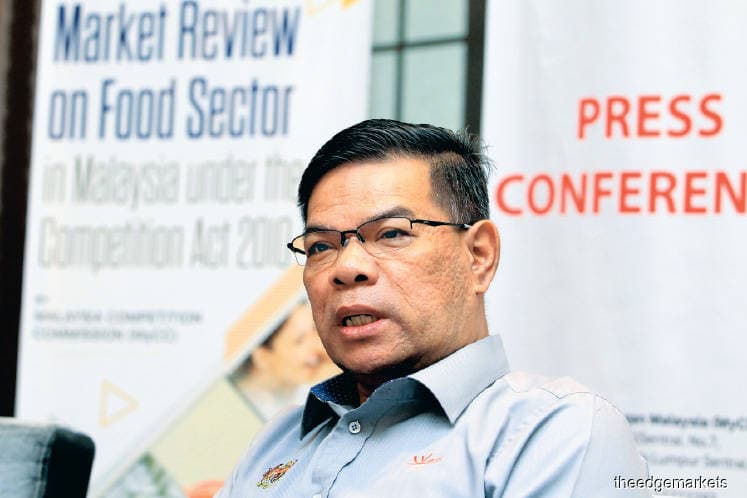
This article first appeared in The Edge Financial Daily on August 7, 2019
KUALA LUMPUR: One of the reasons that has contributed to costlier food items in Malaysia is the country’s over-reliance on imports, according to Domestic Trade and Consumer Affairs Minister Datuk Seri Saifuddin Nasution Ismail.
Saifuddin said Malaysia is still a net importer of food, rather than a self-reliant food producer. He said the nation’s food and live animal imports increased from RM38.9 billion in 2013 to RM51.3 billion in 2017.
“Our inability to be self-sustaining in terms of food production means that we are at the mercy of importers,” he said here yesterday during the launch of the Malaysia Competition Commission’s (MyCC) report entitled Market Review on Food Sector under the Competition Act 2010.
The minister cited the example of beef, which is one of the food items highlighted in the MyCC report. He said the sources of Malaysia’s beef imports are limited to only a handful of countries such as India and Australia, while domestic production is almost non-existent.
“This gives power to importers or foreign exporters to increase prices as and when they like and consumers have no choice but to accept it,” Saifuddin said.
The MyCC report reviews market structure, level of market competitiveness and determines whether there are any anti-competitive conduct in selected food sectors. The report also unbundles the rationale behind the significant increase in prices of food items in recent years.
Five food items were reviewed: beef, Indian mackerel (ikan kembung), infant formula, mustard leaf (sawi) and round cabbage. The MyCC said these items were selected as they have been identified to be major food items for Malaysian households and are known to be susceptible to market issues.
Saifuddin said the MyCC report “presents a few recommendations as to how Malaysia can become more self-sustaining by diversifying our sources for the five food items and expanding our own domestic industry to reduce dependence on imports”.
“By doing so, it is hoped that Malaysia can become a food secure country where citizens are able to get nutritious food at affordable prices,” Saifuddin said.
Round cabbages pricier due to misuse of import APs
Meanwhile, MyCC said there have been elements of abuse of the approved permits (APs) granted for importing round cabbage, which has raised competition issues and caused the price of the vegetable to rise.
MyCC chief executive officer Iskandar Ismail said the abuse, as well as the nature of the close connection among market players, which may result in price collusions, has raised competition concerns in the vegetable market.
“Due to the unscrupulous acts by certain parties, there has been an additional layer of third-party importer (that is AP agent) in the supply chain,” he said.
The abuse was discovered during MyCC’s market review, which ran for nine months.
During the period, the agency went through rigorous research with numerous engagement and consultation sessions with relevant stakeholders in the food sector including relevant ministries, government agencies, associations and industry players.
To resolve the issue, Saifuddin said MyCC has recommended that close monitoring is needed of post-granted AP to ensure availability of choices and competitive pricing of round cabbages in the market.
“When the AP is not issued to genuine players, the AP holders will act more as “toll collectors”. That is the issue. That is why MyCC has suggested that there should be close monitoring on the AP holders after it is being awarded,” he said.
“I will present the findings of this market review to the cabinet ministers to discuss policy-related approach to address the issues. From there, I hope that we will get follow-up actions from the respective ministries,” Saifuddin added.
The report also revealed that the main concerns about the fish sub-sector are the existence of multiple intermediaries within the supply chain, the presence of market inefficiencies in one key distribution hub and the low awareness of alternatives for ikan kembung.
Thus, Iskandar said there is a dire need for active consumer education to be market- and demand-driven and an integrated inclusive e-commerce policy to address the concerns.
Other than the five selected food items, Pasar Borong Kuala Lumpur was also included in the report as it is the largest wholesale market in Peninsular Malaysia, supplying more than 50% of the fresh produce (fish, vegetables and fruits) in Peninsular Malaysia.
MyCC revealed that the market is mired with multiple issues such as additional operating fees, influx of foreign workers or traders, illegal renting of stalls, supply restrictions and other crime-related issues.